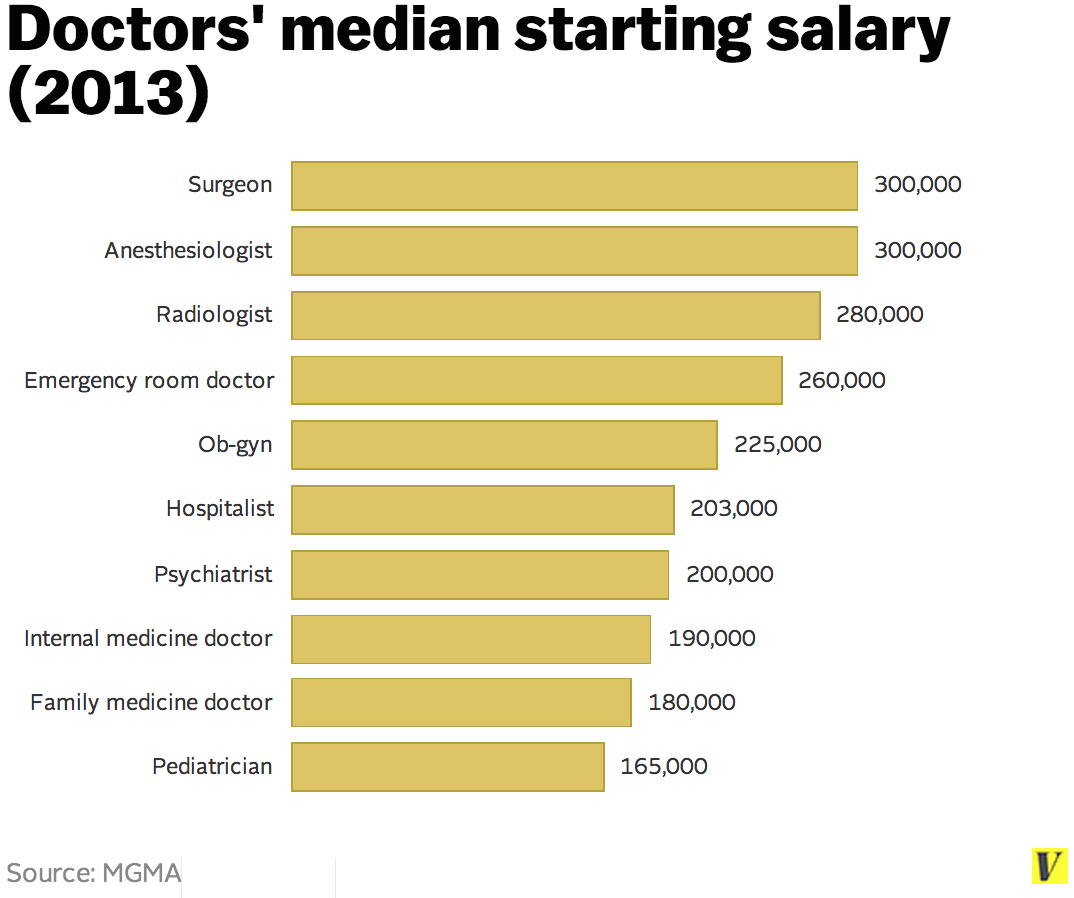Present and former organic chemistry professors, lecturers and teaching assistants, this is why your classes are so full (and your students are so grade-grubby) in one chart, thanks to Vox and the Medical Group Management Association:

There's a hell of a lot of selection and training (and money) involved in becoming a physician, but there are quite some monetary rewards as well... and it seems to all start with learning the difference between an alkane and an alkene. That's just bizarre, but there you have it.
(This chart is a bit unfair, in that I suspect that there are more residency/fellowship training requirements in becoming a surgeon than a pediatrician. It's a measurement of median salaries in the first year after "leaving residency or fellowship." For the record, I'm not one to begrudge physician salaries -- I think they're pretty commensurate with education/importance, etc.)

There's a hell of a lot of selection and training (and money) involved in becoming a physician, but there are quite some monetary rewards as well... and it seems to all start with learning the difference between an alkane and an alkene. That's just bizarre, but there you have it.
(This chart is a bit unfair, in that I suspect that there are more residency/fellowship training requirements in becoming a surgeon than a pediatrician. It's a measurement of median salaries in the first year after "leaving residency or fellowship." For the record, I'm not one to begrudge physician salaries -- I think they're pretty commensurate with education/importance, etc.)
Doctors are overpaid relative to law, science, or post-secondary education. Anyone with an even basic idea of tax law and the ability to use a mortgage calculator can figure out that a doctor needs something like an extra ~$30-40k in income, plus an extra $8-10k for each year or residency beyond the minimum three, in order to cover the typical loans a medical student would run up. Obviously, the pay premuiums are much higher than that, particularly for the specialties. A surgeon with a 7-year residency would need something like an extra $70k annual in income relative to a scientist or professor in order to break even financially, not an extra $200k+. And don't think for a minute that some mythical "free market" is determining medical professional's incomes, as there are both restrictions on the supply side (limited medical school and residency slots) and government control on the payment and demand side (most reimbursements, even from private insurers, are based off how much Medicare pays). Doctor pay needs to change a lot, mostly by cutting down the compensation of specialists.
ReplyDeleteWhere I work ( a humble and well versed organic chemist) my salary comes from Radiology department and now, I know why.
ReplyDeleteOverlaying the cost of malpractice insurance on those salaries might be instructive as to why the salaries are so high.
ReplyDeleteMalpractice insurance is a deductible business expense and therefore would usually come pre-"salary", not post.
Delete